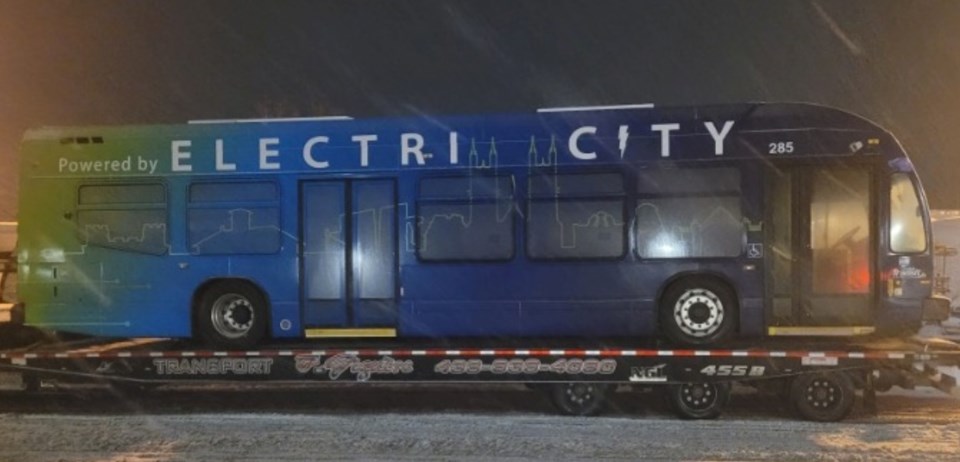A glimpse into the future of Guelph Transit.
The first of four electric buses arrived in the city from Montreal early Friday morning.
The city said the arrival marks a big step in reducing greenhouse gas emissions coming from city-run vehicles. The city said transit operations make up more than 30 per cent of the total greenhouse gas emissions coming from city operations.
"This is the result of an almost four year long project to acquire electric buses," Chris Hill, program manager for fleet planning. "We wanted to model their performance and verify that, in fact, the performance claims were true, that the buses would work and I believe we are the 10th municipality in Canada now to receive electric buses."
Evan Ferrari, the executive director of eMERGE Guelph Sustainability, added it's fantastic news, and the start of a new era.
"I know it's only one bus, but there was no flight before the Wright brothers," he told GuelphToday. "And until we start this stuff, we're never going to be able to move to a path where we've got really good local electrified public transportation. I'm quite excited about it."
The four electric buses are scheduled to be deployed this spring.
Ferrari said he knows it's going to take them a while to get it on the road, with it being a completely different technology, but said it's still a fabulous step forward.
"In an ongoing effort to use 100 per cent renewable energy by 2050, and to meet race to zero targets, the city has already replaced 44 fleet vehicles with fully or partially electric drive units, including three ice resurfacers at indoor arenas," the city said in a release.
In Sept. 2020, council approved the purchase of four electric bus chargers to be installed at the current transit headquarters on Watson Road South for $1.5 million.
This is where buses will be charged until a new Guelph Transit and fleet services facility is built, likely at the corner of Watson Parkway South and Stone Road East.
Initially in Oct. 2021, when the city announced the purchase of the four buses for $5.7 million, it said the buses would be delivered and running by the summer of 2022.
Hill explained the reason for the delay was a shortage of components for the electric motors.
"NOVA Bus is also assembling electric buses right now for other transit agencies, and they had similar delays," he said.
The city also said back then the goal was to get 65 electric buses added to the fleet by 2028, which is more than half the total fleet.
In Jan. 2020, the city announced a $177 million investment to expand and electrify the bus fleet, as well as build the bus storage facility. The federal government kicked in $40 million, while the province put in another $33 million.


.png;w=120;h=80;mode=crop)
